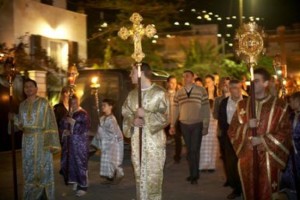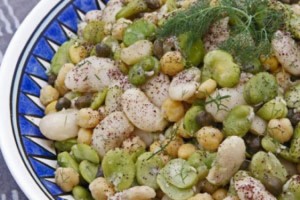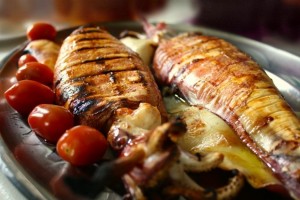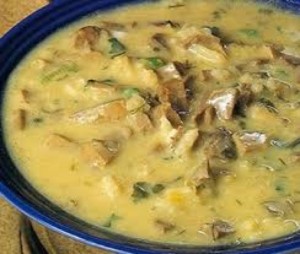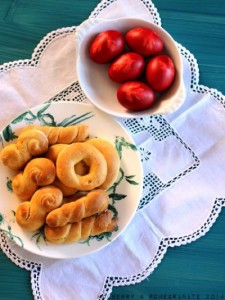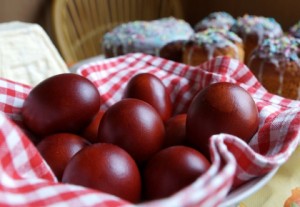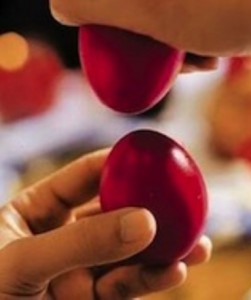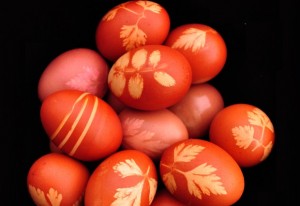 Easter is an occasion when visitors can really feel the spirit of the Greek people and is a wonderful time to visit Greece and experience all the customs and traditions that the Greeks celebrate today that has changed very little in hundreds of years.
Easter is an occasion when visitors can really feel the spirit of the Greek people and is a wonderful time to visit Greece and experience all the customs and traditions that the Greeks celebrate today that has changed very little in hundreds of years.
Easter celebrations in Greece are quite unlike anywhere else in the world.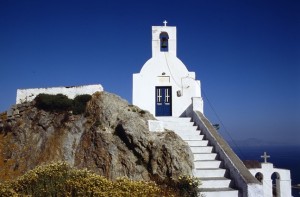
Easter in Greece is the most important and the holiest of all religious festivals in Greece.
Spending Easter time in Greece
 Spending Easter time in Greece is probably as well advertised as summer holidays on a Aegean island.
Spending Easter time in Greece is probably as well advertised as summer holidays on a Aegean island.
The colors and warm spring weather are already sweeping across the country, while people have begun preparing for the Holy Week and Easter Sunday.
However, there is more to the Greek Easter than the much praised and impressive Vrontados rocket war in Chios or the smashing pots custom of Corfu.
Some customs are weird and less known even among Greeks, but this only makes them more interesting and original.
The celebration of Greek Orthodox Easter is filled with rich and colorful Easter traditions, including the decorating of the epitaphios, building bonfires, shooting off fireworks at midnight, and enjoying a feast of lamb.
Think about
going Greek!
 If you’re looking for a different way to celebrate Easter this year, think about going Greek!
If you’re looking for a different way to celebrate Easter this year, think about going Greek!
Easter is for Greeks a glorious family feast with dishes that make the most of the young season’s early produce.
Easter is a four-day celebration, the religious reconstitution of ancient pagan rituals that celebrate the return of spring:
the feeling of the sun’s warmth, the renewal of the earth, the blossoming of plants after the dark and cold winter.
A week before Easter Sunday
The festivities for the Greek Easter begin a week before Easter Sunday and everyday leads to the spiritual climax of Easter day.
Among the traditions is fasting throughout the week which makes it a cleansing experience for the body and soul.
Every evening people gather at the churches where mysticism and byzantine hymens intensify Holy week.
Orthodox fasting excludes all meat products and their derivatives such as cheese and milk.
On Holy Friday also excludes olive oil.
It sounds heavy but there are many delicacies and combinations based on the Mediterranean diet that makes it delicious and not painful at all.
The menu consists of lobster, shrimps, octopus, beans, green salads, many fruits and vegetables along with Greek wine or ouzo.
These are the things that Greeks eat during the Holy week but they also prepare the food for Easter such as Easter cookies, Easter eggs, tsoureki (sweet bread) and many more delicacies.
Sarakosti
Easter is to remember the crucifixion and resurrection of Jesus Christ.
It starts with 40 days of fasting. In Greek its called ‘Sarakosti’.
On saturday evening the Easter celebration start.
At midnight all the lights in the churches are put out.
The priest shows up from behind the Iconostase (the part in front of the church for priests only) with his candle lit with the Holy Light.
The churchbells start ringing and everyone lights their candle.
The tradition says to take the lit candle home to burn a cross above the door.
Easter Sunday usually a sunny day
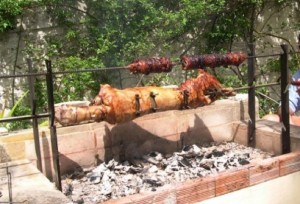 Depending on which part you choose to visit you can see different kind of festivities which make Easter in Greece
Depending on which part you choose to visit you can see different kind of festivities which make Easter in Greece
even more interesting.
The symbolic resurrection of Jesus Christ is announced in churches on the midnight of Saturday accompanied with the “Holy Fire” which comes from Jerusalem on a charter flight.
Along with the ending of the mass of the midnight Saturday ends also the fasting, and celebrations begin.
Easter Sunday is usually a sunny day which gives the opportunity for friends and families to get together to eat, drink and dance.
Greek Easter food & recipes
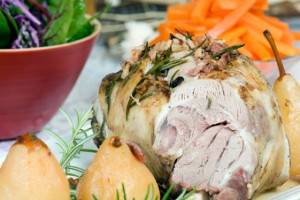 A traditional Greek Easter celebration includes some fantastic tastes and flavor combinations.
A traditional Greek Easter celebration includes some fantastic tastes and flavor combinations.
The centerpiece dish is lamb, making a Greek feast the perfect way to celebrate springtime
and the Easter holiday at the same time.
Other traditional dishes include Dill Lemon Soup, Potatoes with Olives, and Green Beans with Feta.
And for dessert, a delicious Orange and Honey Walnut Cake.
It’s a meal right out of Athens, for sure!
Cuttlefish, calamari,
octopus and Magiritsa
Cuttlefish, octopus, and calamari, our beloved cephalopods, together with shrimp and, of course, lobster, replace meat in the seasonal, one-pot family meals: cuttlefish stew with spring onions and spinach; octopus youvetsi, with orzo pasta baked with the octopus in a wine and tomato sauce (the seafood variation of the traditional lamb youvetsi); or octopus stifado, a hearty stew usually prepared with hare or other game, simmered in a rich sweet-wine sauce with pearl onions, scented with cinnamon and allspice.
Lentil soup, dressed with vinegar, was the traditional dish prepared for Good Friday, but I propose a warm salad of mixed beans with garlic-lemon-tahini dressing–still within the rules of Lent and much more interesting.
Sesame halva is the Lenten sweet par excellence, and bakeries have started to create elaborate sweets and even ice creams based on halva, which is often paired with bitter chocolate.
Traditional magiritsa recipe is the dinner prepared and served in almost every household in Greece on Holy Saturday, while the main Easter meal served on Easter Sunday is spit roasted lamb.
The authentic magiritsa recipe is designed to use the leftover parts of the lamb so that nothing went to waste. Magiritsa is served after the midnight church services to break the 40 day Great Lent period and is considered to be best meal after the fasting period to gradually ease your digestive
system back into its meat eating habits.
Christos Anesti
One of the oldest Easter traditions is dyed red eggs.
These eggs are usually painted on Holy Thursday in commemoration of the Last Supper, the final meal that according to Christian belief Jesus shared with his Apostles in Jerusalem before his crucifixion.
This particular Thursday is called Red Thursday, or Kokini Pempti. Nothing is done on Good Friday.
Cracking Eggs
It’s Easter Sunday, and you’re rearin’ to go.
Here’s what you’ll need to know about Greek Egg Fighting, the special game played every Easter with fervor and commitment.
There can only be one left standing, and if you’re lucky, that one will be you.
Hold your egg in your fist as though your fist were an egg cup.
And say, “Kristos Anesti” (Christ has risen)… The other replies, “Alithos Anesti” (Indeed He has risen).

